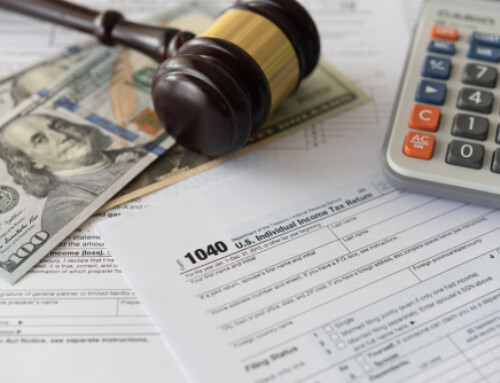On March 18, 2020, Congress passed the Families First Coronavirus Response Act. The Act, which was signed by the President, goes into effect April 1, 2020. It expands entitlements under the Family and Medical Leave Act of 1993 (FMLA) and provides for paid sick leave for employees impacted by COVID-19. In addition, the law provides for tax credits for private employers to help offset the cost of the new paid leave benefits.
FMLA Expansion
FMLA has been expanded to provide job-protected leave to some workers impacted by COVID-19 who would not otherwise be entitled to it.
Public Health Emergency Leave
The law adds a new category of leaves of absence for those unable to work (or work remotely) because of the need to care for a son or daughter whose school or daycare is closed due to public health emergency caused by COVID-19. Employees may qualify for this expanded leave after only 30 calendar days of employment. Covered employers are those with less than 500 employees and public employers. The law gives the Department of Labor the authority to exempt from the requirements employers with less than 50 employees if the law’s provisions would jeopardize the firm’s viability as a going concern. It remains to be seen how the Department will exercise that authority.
Paid Leave
Normally, FMLA leave is unpaid, but the employer can require an employee to substitute paid leave. The new public health emergency leave provisions turn that around. The first 10 days of leave under the expanded provision may be unpaid leave, and the employee may elect to substitute accrued paid leave. After the first 10 days, the leave must be paid at a rate that is at least two-thirds of the employee’s normal rate of pay based on the amount of hours the employee normally would be scheduled to work. However, the total amount of paid leave required to be provided to an employee is capped at $200 per day or a maximum of $10,000. Employees that work varying schedules are entitled to pay based on the average of their work over the preceding 6 months, subject to the same daily and aggregate caps. (Note that this provision is technically separate from the Paid Sick Leave law discussed below, which would cover the first 10 days, or 80 hours, of leave.)
Job Restoration
The fundamental premise of FMLA is the right to be restored to the same position, or a substantially equivalent position, once the leave is over. Employees that take leave under the expanded FMLA provisions are entitled to job restoration. Employers with less than 25 employees do not have to restore an employee to his or her position if the position has been eliminated due to economic or operating conditions that resulted from the public health emergency. However, such employers must attempt to provide an impacted employee with an equivalent position. If they are unable to do so, they must make reasonable efforts to contact the employee if an equivalent position becomes available for up to a year from the later of the end of the public health emergency or the date that is 12 weeks after the beginning of the employee’s leave.
Enforcement
FMLA normally provides that employees may sue their employers for violations, or the Department of Labor may bring an action to enforce the law. For violations of the public health emergency leave entitlement, employees may only sue their employer if the employer has 50 or more employees. In addition, employers of health care providers or emergency responders may exclude such employees from the benefits of the expanded FMLA entitlement.
Paid Sick Leave
In addition to the expansion of FMLA, the Coronavirus Response Act includes an emergency paid sick leave program.
Emergency Paid Sick Leave Entitlement
Paid sick leave must be provided to an employee unable to work (or work remotely) because:
- The employee is subject to quarantine or isolation order by government authorities due to COVID-19
- The employee has been advised by a health care provider to self-quarantine due to COVID-19
- The employee has symptoms of COVID-19
- The employee is caring for an individual subject to quarantine or self-quarantine
- The employee is caring for a son or daughter whose school or daycare facility is closed due to COVID-19 precautions
- The employee experiences any substantially similar condition as prescribed by rules implemented by the Department of Health and Human Services
Amount of Emergency Paid Sick Leave
Full-time employees are entitled to 80 hours of paid sick leave. Part-time employees are entitled to paid sick leave based on the average of hours they work over a 2-week time period unless the part-time employee’s hours vary from week to week. In that case, an average of the previous 6 months is used. The emergency paid sick leave does not carry over from one year to the next if unused, and the entitlement to it ends when the need for the leave ends.
The amount of compensation during emergency paid sick leave depends on the reason for the leave. Leave taken is generally paid at the employee’s regular rate of pay and must be at least the minimum wage. However, if the leave is taken to care for a family member, it can be paid at the reduced rate of two-thirds the employee’s regular rate. Further, like the paid emergency FMLA provision, emergency paid sick leave is subject to caps. Leave taken for the employee’s own quarantine or symptoms of COVID-19 is limited to $511 per day or a maximum of $5,110. Leave taken to care for a family member is limited to $200 per day or a maximum of $2,000.
Use of Emergency Paid Sick Leave
The paid sick leave provided for in the Act is available for use immediately, regardless of how long the employee has worked for the employer. Employees also have to be allowed to use the emergency paid sick leave first in any situation in which it applies, before resorting to use of any sick leave provided by the employer’s normal policies. Employers cannot require employees to use up their normal sick leave first.
Covered Employers
Like the expanded FMLA rights for a public health emergency, the emergency paid sick leave provisions to apply to any private employer with less than 500 employees. The law also applies to all public employers, regardless of size. The Department of Labor has the authority to exempt businesses with fewer than 50 employees from the provisions requiring paid leave to care for a son or daughter whose school or daycare is closed if providing the leave would jeopardize the viability of the business as a going concern.
Notice Posting
Like many other employment laws, this one requires the employer to post notices of employees’ rights in conspicuous places where other such notices are required to be posted. The Department of Labor is required to develop a model notice within 7 days of the Act becoming law, which employers may use to comply.
Anti-Retaliation Provision
Employers may not discriminate against employees for using emergency paid sick leave. They are also protected from retaliation for participating in any proceeding to enforce the Act’s requirements.
Enforcement
The Act’s enforcement provisions largely mirror those found in the Fair Labor Standards Act (FLSA), which governs minimum wages and overtime. A failure to provide the mandated emergency paid sick leave is treated the same way as a failure to pay minimum wages under the FLSA. Similarly, a violation of the anti-retaliation provision is treated as a violation of the FLSA’s anti-retaliation provision.
Pay at Termination
Employers are not required to pay employees at termination from employment for any unused part of the emergency paid sick leave.
Sunset Provision
The Act’s provisions end on December 31, 2020, provided the law is not extended later by Congress.
Group Health Plan Provisions
Group health plans must generally cover the cost of COVID-19 testing. They must also waive cost-sharing provisions such as copays, deductibles, and coinsurance for provider visits related to COVID-19 testing.
Tax Credits
Employers that provide paid leave benefits under the expanded FMLA rights, or that provide emergency paid sick leave, may receive a tax credit against Social Security taxes owed, up to the maximum amounts payable to an employee in the two acts. If the credit exceeds the Social Security tax owed by the employer, the federal government will issue a refund for the difference. A similar tax credit is available for health plan costs related to the Act. Notably, public employers (the state and its political subdivisions) are not eligible for the tax credit. In addition, wages paid pursuant to the expanded FMLA or emergency paid sick leave are not considered wages for purposes of Social Security tax when paying quarterly employment taxes.
Next Steps
Virtually all employers are impacted by the provisions of this law. With schools in South Carolina (and many states throughout the nation) already closed, employers will need to contend with the expanded FMLA leave and emergency paid sick leave to care for employees’ children that are out of school almost immediately. If cases of COVID-19 expand as predicted, most employers will have to deal with emergency paid sick leave for employees more directly impacted by the virus.
Because the emergency paid sick leave requirement ends at the end of 2020 and the expanded FMLA requirement applies only to COVID-19, full-blown rewrites of employers’ FMLA and sick leave policies are probably not warranted at this time. Employers should consider policies designed to comply with the specific mandates of these laws. In addition, employers need to track the paid leave provided to employees to be able to recoup the costs when filing quarterly payroll taxes. Employers with group health plans may need to amend their plan documents to cover the testing required by the Act. In addition, Employers need to be on the lookout for a model notice issued by the Department of Labor to post, explaining the emergency paid sick leave requirements. The Department may also update its FMLA poster, and employers should remember that they have a duty under FMLA to notify employees of their rights.
There are many provisions of the Coronavirus Response Act that substantially affect employers. South Carolina employers that have questions about their obligations under the new law should consult with their employment lawyer, or contact us.






